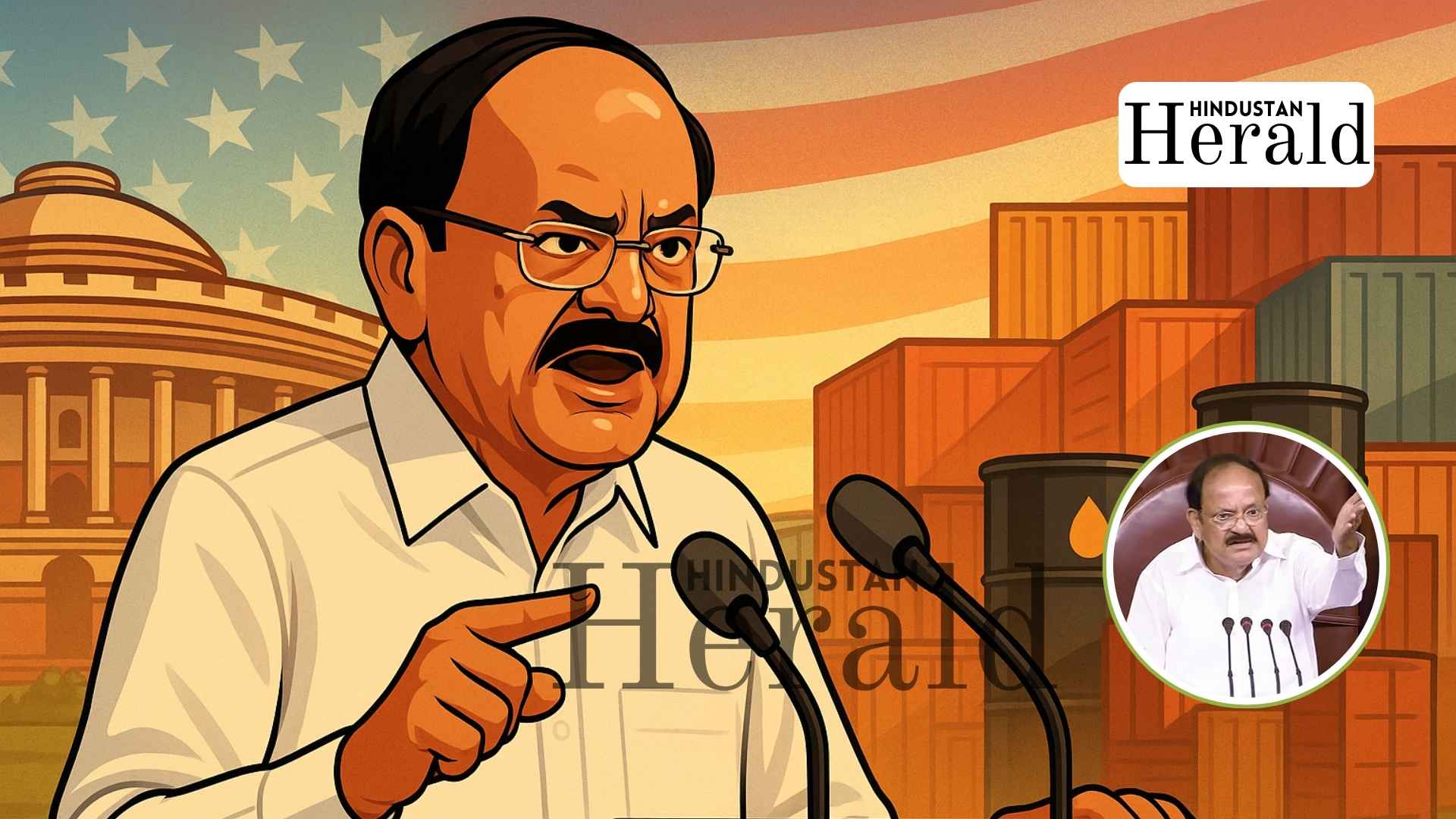New Delhi, August 9: Former Vice-President M. Venkaiah Naidu on Friday said India will not “yield to any threats” over its oil trade with Russia, directly addressing U.S. tariff action that has rattled exporters and injected new tension into the relationship between the two countries. The remarks came at the M. S. Swaminathan Centenary International Conference in the capital, only days after Washington doubled import duties on a list of Indian goods.
The trigger, according to NDTV, was New Delhi’s decision to keep buying Russian crude despite U.S. sanctions. President Donald Trump’s order takes tariffs from 25 percent to 50 percent, a sharp escalation that Indian officials privately admit could spill into a wider trade row.
No Concessions On Energy Security
Naidu didn’t name Trump, but he went straight at the policy. “No question of yielding to any threats. Threats will not work on India,” he said. He accused Washington of double standards, pointing out that the European Union still imports “large amounts” of Russian crude and the U.S. continues to buy uranium and fertiliser from India.
It wasn’t just a defence of current oil policy. Naidu tied the issue to India’s economic standing, noting it had moved from the fourth to the third-largest economy and now contributes 18 percent of global GDP growth, compared to 11 percent from the U.S. “Some countries are enviousthey are suffering from indigestion,” he said with a wry smile.
A Trade Relationship That Bites Back
The U.S. is India’s top export market nearly $80 billion last year but also its most persistent source of trade disputes. Price caps on medical devices, curbs on agricultural exports, digital services taxes each has brought friction. Oil imports from Russia have now become the latest fault line.
That matters because of the scale. Russia supplied about a fifth of India’s crude in recent months, at prices Delhi says help keep inflation in check. Dropping that supply would mean higher fuel costs, more strain on the rupee, and, as energy analysts have warned, pressure on manufacturing.
Strategic Autonomy Still The Guideline
Naidu’s line echoed a policy every Indian government has stuck to since the Cold War strategic autonomy. In practice, that means taking decisions on trade and security based on national interest, even if they cut against the grain of a strategic partner’s expectations. “India is standing on its own,” Naidu said, adding that cooperation will be guided by a “share and care” philosophy.
He is no longer in office, but Naidu’s words align with the Modi government’s stance. They also resonate politically in an election year. Sovereignty, self-reliance, and resisting outside pressure are themes the BJP has pushed repeatedly in rallies and parliamentary speeches.
Politics In The Background
With key state elections coming up, the message plays well. Supporters see it as proof India won’t be pushed around. Critics in the opposition agree on the principle but want more engagement to avoid export losses. Congress MP Shashi Tharoor said this week that market access should be protected “without undermining strategic autonomy.”
Meanwhile, diplomats are working behind the scenes. Sources in the Ministry of External Affairs say talks are underway to find a compromise before tariff hikes start hitting exporters. But in public, the message from figures like Naidu is blunt: India’s sovereignty is not negotiable.
Stay ahead with Hindustan Herald — bringing you trusted news, sharp analysis, and stories that matter across Politics, Business, Technology, Sports, Entertainment, Lifestyle, and more.
Connect with us on Facebook, Instagram, X (Twitter), LinkedIn, YouTube, and join our Telegram community @hindustanherald for real-time updates.
Covers Indian politics, governance, and policy developments with over a decade of experience in political reporting.






